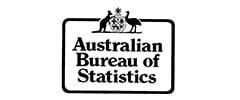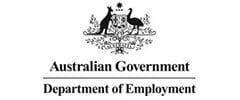‘I’m not sure it’s my role’. This was a comment we received recently during a presentation on mental health conversations in the workplace.
We may notice that a work colleague or client is not their normal self. Perhaps their behaviour has changed. Or the language they are using and their demeanour is different.
But the person in the workshop was worried. Particularly that they didn’t really ‘feel it was their place’ to approach the person. So we use this as the focus of our conversation today.
Note:
We’ll be speaking about mental health in the workplace.
You or someone you know may have a lived experience with mental health.
Some participants may find the content confronting, or it may cause distress.
If you or someone you know needs support, contact:
Lifeline on 13 11 14 or lifeline.org.au
Beyond Blue on 1300 224 636 or beyondblue.org.au
Suicide Call Back Service 1300 659 467 or suicidecallbackservice.org.au
If a life is in danger, call Triple Zero 000
Listen to the Coaching Cafe podcasts
About mental health
The World Health Organisation defines mental health as: …a state of well-being in which the individual realises [their] own ability. Furthermore, can cope with the normal stresses of life. In addition, can work productively and fruitfully. And is able to make a contribution to their community.
Why are mental health conversations in the workplace important?
The need to discuss mental health in the workplace is important. You only have to look at the statistics across the general population. Not just because of the impact of COVID-19. We were raising awareness of mental health and the need for training prior to this. But post-COVID-19 we are seeing an increase in prevalence of mental health issues. And importantly the need for further discussion.
Is it my role?
It’s not uncommon to wonder whether it’s your job to start a mental health conversation. Or actually how to do that. Alternatively, whether you should get others involved, for example HR. We all have to work within our limits or limitations. However, the research suggests that getting early support is one of the keys to healing and becoming healthy again. Furthermore, there are strong links between work and a mental health.
Therefore as a leader manager or coach, we can play a vital role, if we choose too.
How to start a conversation
There are some great short presentations on how to start a mental health conversation. In particular, we like the campaign from RUOK.org.au. Paula offers the following tips:
- Ask: Are you OK?
- Listen with an open mind
- Furthermore, explain why you are concerned
- Be prepared to wait and be comfortable with silence
- Importantly, don’t give advice – explore options
- In addition, encourage action
- And check in with the person at a later time.
We can all play a role in promoting mental health in our workplaces. Importantly, we are often in a good position to do so. To help you learn more and take those next steps you can find out more about our Mental Health First Aid Training.
FREE Coaching Cafe Webinar
Every week our team of experts present “Coaching Cafe” webinar with topics for Managers, Leaders, Business Owners, and everyone who wants to be a better workplace coach, leading their teams to higher productivity, better outcomes and a happier, healthier workplace.






































